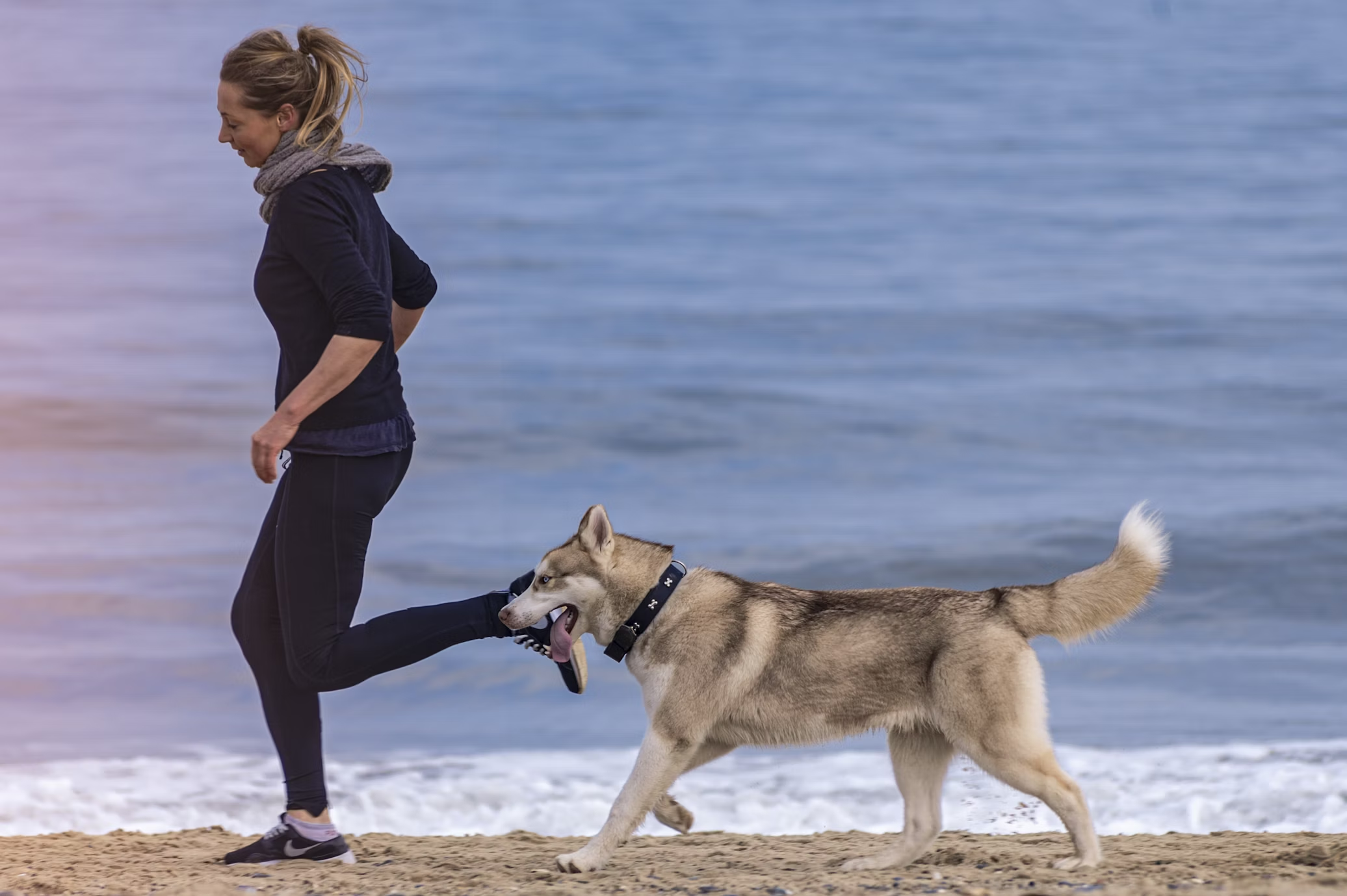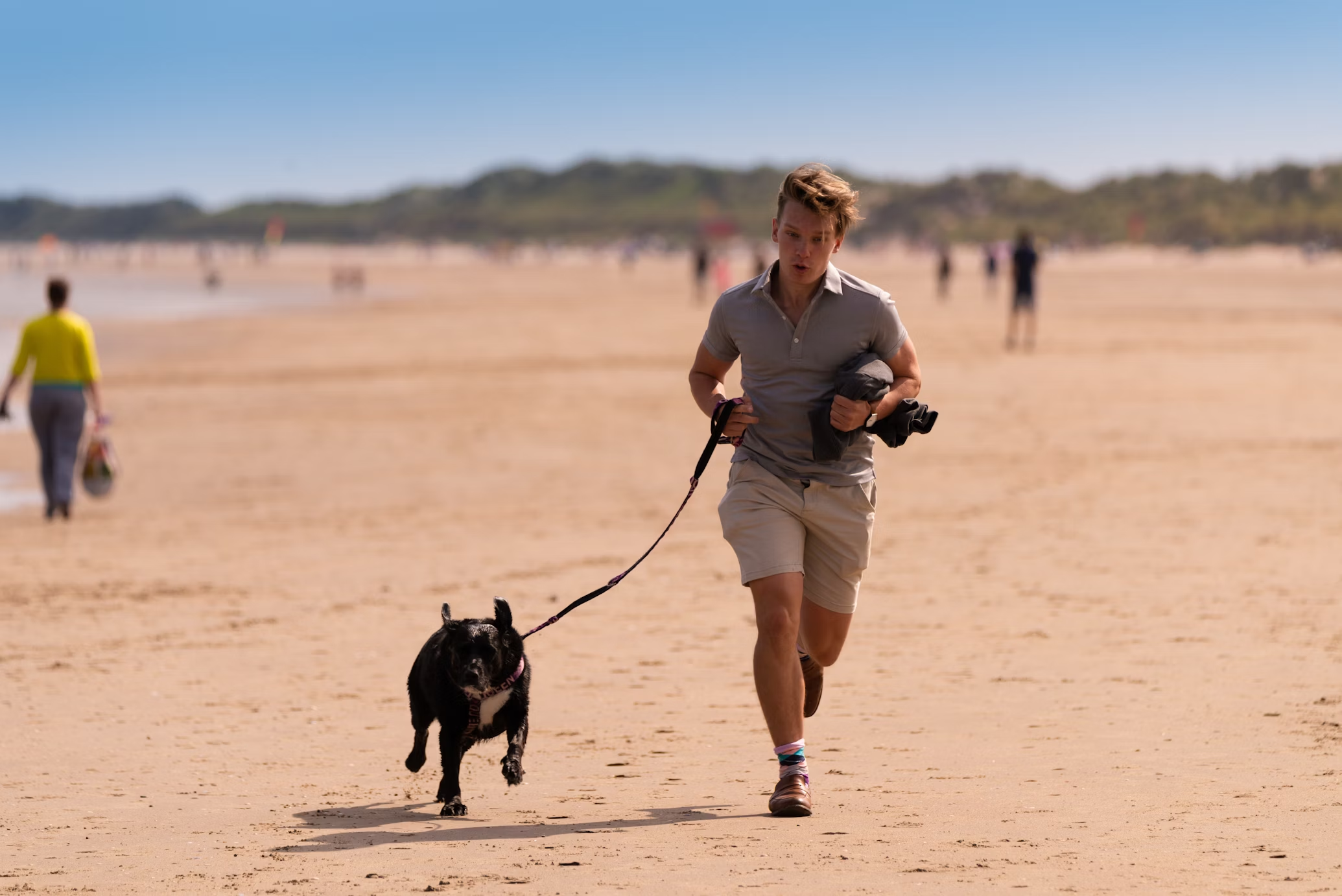
Dogs are more than just pets; they are our loyal companions, guardians, and often, our best friends. Just like humans, they need regular exercise to stay healthy, happy, and well-behaved. But how much exercise is enough for a dog? This is a common question among dog owners, and the answer can vary based on several factors. In this article, we’ll explore these factors in detail, backed by statistics and expert opinions.
Why Exercise is Important for Dogs
Exercise is crucial for dogs for several reasons:
- Physical Health: Regular exercise helps maintain a healthy weight, strengthens muscles and bones, and improves cardiovascular health. Obesity in dogs is a growing concern, with studies showing that over 50% of dogs in the United States are overweight or obese .
- Mental Health: Exercise provides mental stimulation, reducing the risk of anxiety, depression, and behavioral issues. A well-exercised dog is less likely to engage in destructive behaviors such as chewing, digging, or excessive barking.
- Socialization: Exercise often involves interaction with other dogs and people, which is essential for a dog’s social development. Well-socialized dogs are generally happier and less aggressive.
Factors Influencing Exercise Needs
The amount of exercise a dog needs can depend on various factors including breed, age, size, and health condition.
Breed
Different breeds have different exercise requirements. For example:
- High-energy breeds: Dogs like Border Collies, Australian Shepherds, and Siberian Huskies are known for their high energy levels and need more intense exercise. These breeds may require up to 2 hours of exercise per day.
- Moderate-energy breeds: Breeds such as Beagles, Bulldogs, and Terriers need about 1 hour of exercise per day.
- Low-energy breeds: Dogs like Basset Hounds, Shih Tzus, and Pugs may be satisfied with 30-45 minutes of gentle exercise daily.
Age
A dog’s age plays a significant role in determining its exercise needs:
- Puppies: Young dogs have boundless energy but should not be over-exercised due to their developing bones and joints. Short, frequent play sessions throughout the day are ideal.
- Adults: Adult dogs typically require a consistent routine of exercise based on their breed and energy levels.
- Seniors: Older dogs may need less exercise, but it remains important to keep them active to maintain joint health and prevent obesity. Gentle walks and light play are recommended.
Size
Size also affects how much exercise a dog needs:
- Small breeds: Smaller dogs, like Chihuahuas and Pomeranians, can often meet their exercise needs with indoor play and shorter walks.
- Large breeds: Larger dogs, such as German Shepherds and Golden Retrievers, usually need more space and longer periods of exercise.
Health Condition
A dog’s health status is a critical consideration:
- Healthy dogs: Can follow the general guidelines based on their breed, age, and size.
- Dogs with health issues: Conditions like arthritis, heart disease, or respiratory problems may require modified exercise routines. Always consult a veterinarian for personalized advice.
Types of Exercise for Dogs
Providing a variety of exercises can keep your dog engaged and happy. Here are some popular types:
Walks
Walking is the most basic and essential form of exercise. It not only provides physical activity but also mental stimulation as dogs explore different scents and sights.
Running
For high-energy breeds, running can be an excellent way to burn off excess energy. Whether it’s jogging alongside you or running freely in a safe, enclosed area, this vigorous activity is great for cardiovascular health.
Fetch
Playing fetch is a favorite for many dogs and can be a great workout. It combines running with the added excitement of chasing a ball or toy.
Agility Training
Agility training involves navigating an obstacle course and is fantastic for both physical and mental exercise. It also strengthens the bond between dog and owner.
Swimming
Swimming is a low-impact exercise that is particularly beneficial for dogs with joint problems or those recovering from injuries. It’s also a great way to cool off in hot weather.
Playdates
Socializing with other dogs through playdates can be a fun and effective way for dogs to get their exercise while also developing social skills.
Here is a video showing the optimal steps when taking your dog out for a walk:
How to Know if Your Dog is Getting Enough Exercise
Monitoring your dog’s behavior and physical condition can help determine if they are getting enough exercise:
- Healthy Weight: A well-exercised dog maintains a healthy weight. If your dog is gaining weight, it may be a sign they need more exercise.
- Behavior: Dogs that get enough exercise are generally calmer and better behaved. Excessive barking, chewing, or hyperactivity can indicate a need for more physical activity.
- Sleep Patterns: A well-exercised dog will sleep well and have a consistent sleep pattern. Restlessness or difficulty sleeping can be a sign of inadequate exercise.
Expert Recommendations
Veterinarians and dog trainers often provide guidelines based on the latest research and their professional experience:
- The Academy Animal Hospital recommends at least 30-120 minutes of exercise per day for most dogs.
- The Pet Obesity Prevention Association suggests that dogs should get at least 30 minutes of exercise daily.
Incorporating Exercise into Your Routine
Here are some practical tips for ensuring your dog gets the right amount of exercise:
- Set a Schedule: Consistency is key. Try to exercise your dog at the same times each day.
- Mix It Up: Vary the types of exercise to keep things interesting.
- Use a Fitness Tracker: Consider using a dog activity tracker to monitor your dog’s exercise levels.
- Get the Whole Family Involved: Involving multiple family members can help ensure the dog gets enough exercise even on busy days.
Conclusion
Regular exercise is essential for a dog’s physical and mental well-being. By understanding your dog’s specific needs and providing a variety of activities, you can ensure they lead a healthy, happy life. Remember, a well-exercised dog is a well-behaved dog. So, lace up those walking shoes, grab a leash, and enjoy some quality time with your furry friend!































